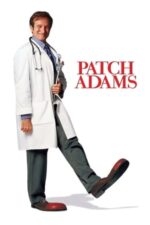Beyond the Stethoscope: Exploring the Crucible of Medical School in Film
There's something inherently fascinating about stories set within the hallowed halls – and often, intensely stressful environments – of medical school. It’s a world of immense pressure, intellectual rigor, ethical dilemmas, and the constant weight of responsibility for human lives. And film has consistently returned to this space, not just to depict the science but to explore the people becoming doctors. It's more than just memorizing anatomy; it's about forging character under fire.
Think about Disciples of Hippocrates. The film isn’t a procedural drama showing surgeries or diagnoses. Instead, it focuses on Ogino, a student grappling with activism and self-doubt. That tension – the idealism of wanting to heal versus the harsh realities of a flawed system – is something that resonates deeply. It's not just about passing exams; it's about questioning your place in the world and whether you’re truly cut out for this demanding path. It reminds me, honestly, of how I felt during my own postgraduate studies - that constant internal debate between passion and practicality.
And that struggle is often intertwined with personal relationships, as we see in Of Human Bondage. While ostensibly a story about an unconventional romance, the protagonist’s pursuit of medical training provides a framework for his self-discovery – or lack thereof. The demanding nature of his studies becomes another layer of complexity in his already turbulent life. It's a potent reminder that becoming a doctor isn't just about academic achievement; it demands emotional resilience too.
Now, you might be thinking, "Okay, but what about something lighter?" Enter Patch Adams. Robin Williams’ performance is undeniably charming, and the film champions the idea of humor as medicine – a concept often dismissed by more traditional medical institutions. While perhaps romanticized, it highlights the importance of human connection in healthcare, something that can easily get lost amidst the clinical procedures. It's a feel-good movie, sure, but it also asks us to consider: how much empathy and compassion are really valued in modern medicine?
Then there’s the wonderfully bizarre Re-Animator. Okay, so maybe dissecting corpses isn’t exactly part of the curriculum (though I bet some students have fantasized about it!), but this film taps into that inherent fascination with life, death, and pushing boundaries – a curiosity that can drive scientific innovation… or lead to monstrous consequences. It's a darkly comedic exploration of ambition gone too far.
Ultimately, films set in medical school offer more than just a glimpse behind the scenes of a prestigious profession. They hold up a mirror to our own anxieties about responsibility, morality, and what it truly means to serve others. They’re stories that stay with you long after the credits roll, prompting reflection on the human condition – both inside and outside those sterile, brightly lit hospital rooms.
What films have you found particularly insightful in exploring this theme? I'd love to hear your thoughts!

































